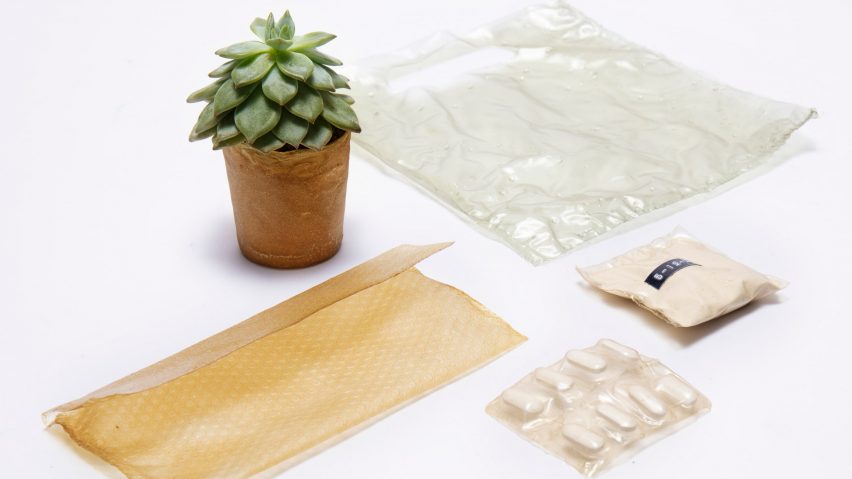The UK government has called for experts to help it develop standards for bioplastics and biodegradable plastics, amid rising concern over greenwashing.
The government has published a document seeking evidence on potential "demand, benefits, and implications of standards for bio-based and biodegradable plastics".
The call is set out in a paper, called Standards for bio-based, biodegradable, and compostable plastics: call for evidence, which was published earlier this summer.
The call is intended to gather information to help the government decide how to implement standards for a new generation of plastics that can be manufactured and disposed of without harming the environment.
Current terminology "really confusing"
Designers welcomed the move. Sophie Thomas of environmental communication design studio Thomas.Matthews said current terminology was "really confusing" and that designers and the public were struggling to get reliable information.
As a result, "greenwashing" is on the rise, she said, with brands making spurious claims about the environmental benefits of their products.
"You can call something 'biodegradable' when it's actually not," said Thomas, who founded The Great Recovery, a programme exploring design's role in the circular economy.
People assume that compostable plastic can be composted in the garden, she added, without realising that certain types will only break down in an industrial composter. "So you can't put it in your composting bin because it won't break down, and it won't break down in the ocean either."
The UK currently lacks the industrial composters needed to handle compostable plastic waste, Thomas said. Instead, the waste goes to landfill.
The country also lacks defined standards for biodegradability and compostability, meaning that producers are able to use the term misleadingly without being challenged. There are no internationally agreed standards for bioplastics or biodegradable materials.
There is a British Standard for bioplastic, but "it's not giving us the right information," Thomas said. "There is a need not just for standards but for classification," she said.
Paper provides definitions of terminology
The government paper identifies confusion over terms such as bioplastic, biodegradable and compostable, saying there is "often conflation between the terms".
It provides definitions of the terms. Bioplastics, or bio-based plastics, "are made using polymers derived from plant-based sources such as starch, cellulose, or lignin," the document says. These "can be engineered to be biodegradable" or "equally they can be made to function exactly like conventional fossil-based plastic."
Biodegradable plastic meanwhile "can be broken down into water, biomass, and gasses such as carbon dioxide and methane". However "biodegradability depends on environmental conditions such as temperature, humidity, microorganisms present, and oxygen".
Researchers from the University of Plymouth recently found that shopping bags made from plastic describe as "biodegradable" could still be used after three years in the ocean. They concluded that bioplastics offered "no advantage" over regular plastics in terms of reducing ocean pollution.
Compostable plastics are "a subset of biodegradable plastics that break down safely into water, biomass and gasses under composting conditions," according to the government document.
These conditions, involving temperatures of 55-70 degrees Celsius plus high levels of humidity and oxygen, can be created in industrial composters. However compostable plastic "may not break down under home composting conditions". Nor will it readily break down when dumped in landfill or in the sea.
"Activism can only be effective when informed"
Architect Arthur Mamou-Mani welcomed the document.
"This government call for evidence will help provide holistic insights on the positive and negative aspects of each plastics and where we should all focus our goodwill," he said. "Labels such as 'biodegradable' are now too vague and misleading for the general public."
"Nothing would be worse than stopping innovation by a fear of change caused by misinformation or ignorance," added Mamou-Mani, whose work involves 3D-printing with advanced bioplastics.
"Activism can only be effective when informed by unbiased international metrics, standards and certifications."
The government will also seek evidence on "the overall sustainability of bio-based and biodegradable plastic products in comparison with those made from other materials". Earlier this year, recycling expert and architect Arthur Huang claimed that bioplastics could be worse for the environment than conventional fossil-fuel-based plastics.
The closing date for submissions to the call for evidence is 14 October 2019.
The main image is of recyclable bioplastic objects created by Shellworks.

